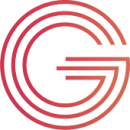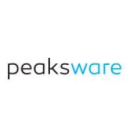Despite women making great strides and tech companies putting their collective best foot forward when it comes to diversity efforts, women are still largely underrepresented in the tech scene writ-large. In the United States, only 27 percent of all students taking the AP computer science exam are women, and in the workplace, women only hold 25 percent of computing jobs.
The gender disparity in tech is not an issue that will be fixed overnight, but in the meantime, women in the Colorado tech community refuse to take a backseat. We talked to four women about their experience navigating the tech world to learn more.
Vendavo wants companies to stay a step ahead of the curve. The company aims to help B2B companies navigate the digital business world by providing price management and optimization software that allows them to gain insights into the pricing process. Chief People Officer Dr. Martha Jensen explained why mentorship is the cornerstone of a lasting career in tech for women.
How did you get your start in tech? What advice do you have for women who are trying to break in?
Since starting in the military and beyond, I have always been in tech. Most of my roles in training, employee development, organizational development and human resources have not been technical themselves, but the communities I support and work with have all been tech-based.
For women breaking in, my advice is to never be apologetic about being a woman (possibly the only woman) on the team. You have earned the role; now own it and take full responsibility for your career. It is equally important to get a mentor, someone who can and will help you navigate not only the organization but your chosen career field.
For women breaking in, my advice is to never be apologetic about being a woman (possibly the only woman) on the team. You have earned the role, now own it and take full responsibility for your career."
What’s the best piece of advice you have received about navigating the tech world as a woman?
Get a mentor. Find someone who will be honest with you about what you are good at and where you need to stretch, learn and grow.
Managers can be good or bad, but you can’t change that. You do, however, have total control over who your mentor is. Find one that is genuinely interested in helping you, one that has the time and the demeanor to be helpful and to push you to stretch yourself to your fullest capacity. One who will force you to look in the mirror and take stock of yourself and how you are helping or hurting yourself. And as you grow, so will your requirements in a mentor. Change it up every 18 to 24 months, but stay in touch with all your mentors. It is a very small world out there.
Is Vendavo doing anything to promote diversity and inclusiveness in your organization or the broader tech community?
I believe the beginning of any diversity and inclusion strategy is your company culture. We have done a lot of work on creating a customer-centric culture of accountability, innovation and transparency.
Our culture has given rise to grassroots programs and events, such as our Women In Technology group that meets monthly for lunch here in the local Denver office. We also have created in-depth leadership development programs focused on not only business acumen, but how to manage humans. Learning to value every voice and every “thinking style” is a big part of being an effective manager and building meaningful inclusion.
In terms of recruiting, we have a global workforce. We rely on recruiters, as many companies do, but we also rely on university partnerships, such as Colorado University and others domestically and internationally. And we rely on internal referrals; with this strategy, we get a very diverse pool of candidates for each of our positions.
Granicus makes it easier for public sector organizations, like the Arizona Department of Transportation and the Maryland Department of Natural Resources, to communicate. The software company creates solutions for local, state and federal government organizations that provide communications, meeting and agenda management. Software engineering manager Tracie Karsjens shared how her childhood interest became a future career.
How did you get your start in tech? What advice do you have for women who are trying to break in?
I started programming at seven years old, so it was a natural career choice for me to get started right out of college as a consultant.
My advice to women who are trying to get started in tech is to ask for what you want. That might be opportunities, referrals, training or anything else that helps you get where you want to be. Network with others who can help you but be your own advocate and don’t be afraid to ask.
My advice to women who are trying to get started in tech is to ask for what you want. That might be opportunities, referrals, training or anything else that helps you get where you want to be."
What’s the best piece of advice you have received about navigating the tech world as a woman?
While not strictly advice, the most helpful thing I have ever received is from my parents. They raised me to believe I could do anything and to never let gender be an issue one way or another. This perspective allowed me to go into college and the tech industry and not be intimidated by being surrounded by men. I saw myself as capable and that helped shape how other people saw me. It’s important to remember how much how we see ourselves influences others.
Is Granicus doing anything to promote diversity and inclusiveness in your organization or the broader tech community?
I am a newer employee at Granicus and I feel so welcomed. I have experienced a culture that values individuals and cultivates respect for them. I think that’s the key to really promoting diversity: not focusing on different segments of the population but treating everyone as important. This mindset is contagious, and I see it spreading outside the workplace because when people feel valued they are better positioned to respect others.
Carbon Black goes above and beyond traditional antivirus programs and uses real-time data analytics to secure endpoints and prevent cyberattacks. The company provides everything from risk and compliance consultation to anti-virus protection for companies like Adobe and Samsung. Serina Clark, a senior director at the company, told us how finding a support system early can have a positive impact on your career.
How did you get your start in tech? What advice do you have for women who are trying to break in?
As a senior in high school, I attended a local community college and had a professor who nudged me toward applying to the engineering program at the University of Colorado. Upon being accepted into the program, I was quickly welcomed by the Women in Engineering Society, which provided an incredible support system and financial assistance. During my college years, I continued to find strong support groups through both female and male peers. Finding these groups and support systems early on can expose you to new opportunities for learning and development.
What’s the best piece of advice you have received about navigating the tech world as a woman?
Find a strong support group and strive to learn something new on a regular basis. Discover new opportunities and have the confidence to ask enough questions. Whether you’re just starting out or are an experienced professional, being curious never gets old — especially with how quickly tech changes.
Also, seek out people who will advocate on your behalf and find others who you can advocate for. In my career, I’ve been fortunate to have some strong male advocates. When considering a career, ask around and look into companies where women in tech have good experiences and have been able to move up in their careers.
Find a strong support group and strive to learn something new on a regular basis."
Is Carbon Black doing anything to promote diversity and inclusiveness in your organization or the broader tech community?
Carbon Black is actively creating a more inclusive culture across the board. We established a group called The Cigar Room that regularly discusses the challenges and opportunities of being a woman in technology, provides insights and helps women connect with one another. We also are taking strides to overcome unconscious bias for all diverse people including signing onto the Parity Pledge. And just recently we formalized a women’s focused mentorship program to help encourage more one-on-one networking and increase learning opportunities.
For Peaksware, practice makes perfect. The parent company for a trio of software brands including MakeMusic, TrainingPeaks and TrainHeroic, Peaksware’s goal is to help athletes and musicians grow their skills. Yuva Loganathan, the company’s software engineer and tech lead, passed along the lessons she learned throughout her career in tech.
How did you get your start in tech? What advice do you have for women who are trying to break in?
I got interested in computer programming when I wrote my first basic program at our brand new computer lab in '96. I grew up in India so tech was slow getting to the school system. I was hooked from the first day and pursued a computer science major in college. I graduated and started programming professionally at first in telecom, and then graduated to web 2.0.
I'll highlight two lessons learned from being in this field for 13 years:
1. Be confident in your skills, and don't be afraid to say "I do not know now, but I will know soon."
2. Women consistently ask for lower pay compared to our male counterparts. Let’s put our humility aside during salary negotiation and ask for what we believe is the right pay.
Women consistently ask for lower pay compared to our male counterparts. Let’s put our humility aside during salary negotiation and ask for what we believe is the right pay."
What’s the best piece of advice you have received about navigating the tech world as a woman?
Communication is the key to success. I was very quiet and shy during the first few years of my career. I did not offer my suggestions if no one asked me about them. I got constant feedback to speak up in brainstorming meetings, but I did not want to for the sake of hearing my own voice.
I would eventually speak up when I had something positive to add to the conversation. I learned that people can perceive quietness as disinterest if you do not clarify it. I learned to ask plenty of questions (fundamental to esoteric nonsense) to clarify not just my own understanding, but for others in the room.
Being honest in our communication would take away all of the burdens of how people perceive us.
Is Peaksware doing anything to promote diversity and inclusiveness in your organization or the broader tech community?
Other than being an equal opportunity employer, we put in a lot of effort at the leadership level to improve communication within and between our teams, to create a workspace that encourages healthy conflict and fosters creativity. We hire people with diverse backgrounds and personality traits to allow for a healthy conflict-rich environment.








